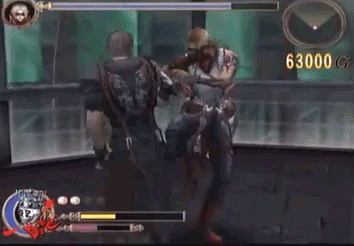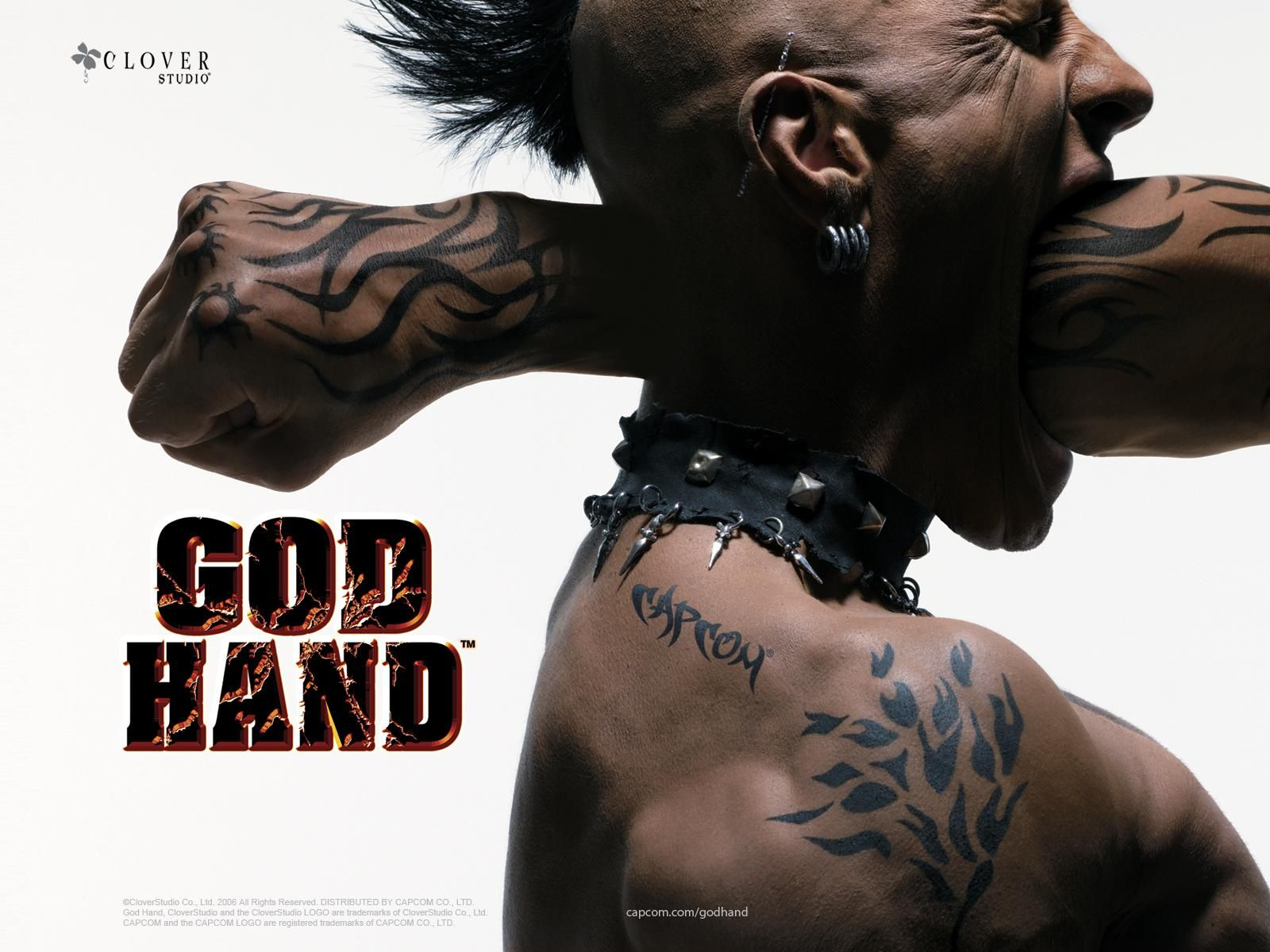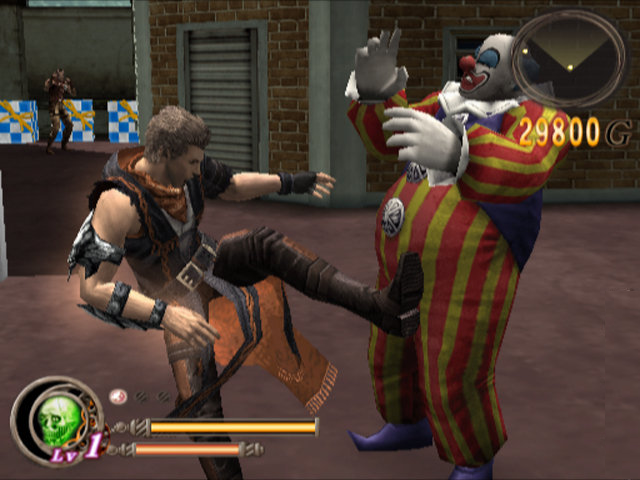God Hand - An Ode To Creative Freedom
When you hear the name Shinji Mikami, chances are you think of his work redefining the survival horror genre with Resident Evil, or his reinvention of the third-person shooter genre with Resident Evil 4. Two of the most successful games of all time, and yet, I would argue his magnum opus was one of his least discussed projects, 2006’s God Hand.
Before Asura’s Wrath was punching everything into nothing Gene was pummelling everything in sight.
While I wouldn't suggest God Hand is some unknown game, it is certainly one of the more low profile releases in Mikami’s resume. For example, one of the most well-known things about the game is a 3/10 review it received from one of the biggest gaming sites in the world. It's fair to say that it isn't quite held in the same regard as Resident Evil. However, it was Resident Evil 4’s wild success that even allowed God Hand to exist in the first place.
Clover Studio was a short-lived Capcom studio specifically formed to create new IPs for the publisher. Composed of several huge names at Capcom, that’s including Devil May Cry creator, Hideki Kamiya, Producer Atsushi Inaba and the majority of the development team of Viewtiful Joe: Clover’s unofficial first game. The zany Viewtiful Joe and its sequels were followed by the stunning Okami, a game dubbed the“least commercially successful winner of a game of the year award” per the 2010 edition of the Guinness World Records. Following a falling out over Resident Evil 4 being ported to the PS2, Shinji Mikami joined Clover in search of greater creative freedom and God Hand was born.
I just noticed the Capcom tattoo on this guys shoulder and my god this truly is the best video game advert ever.
So, what exactly is God Hand? The short version: God Hand is about a man named Gene punching people. The long version: God Hand focuses on Gene punching and kicking people with his magic arm. Born from a desire to bring the action genre - which had increasingly become about weapon-based combat - back to the classic beat-em-up roots. What made God Hand unique was the lack of a predetermined move-set, instead allowing players complete freedom to craft their own strings of attacks and combos from around 120 moves.
You can spend hours just going through all of the combinations, you could make your normal button mash combo all of the slowest and most powerful moves if you like, or even exclusively launchers back to back. You’d likely get destroyed as it’s a tough game, but you could do it! The gameplay may seem barebones at first but God Hand succeeds at making the most straightforward enemy encounters feel exciting, paired with some of the best bosses this genre has to offer.
BEHOLD! ART!
Beyond core gameplay God Hand also has the honour of being perhaps the Capcom action game that takes itself the least seriously. Considering that publisher’s marque action franchise, Devil May Cry, is known for being half self-serious melodrama and half stylish hard action rollercoaster ride it is some feat that God Hand takes the cake in that regard.. Even at it’s most tame God Hand is several notches of silly beyond almost any other game put out by a major publisher. The plot revolves around Gene - a martial artist who lost his arm in a scrap and was gifted one of the two legendary ‘God Hands’ by his companion Olivia.
In return for his gift, he spends the entire game doing odd jobs for Olivia while being pursued by a group named the ‘four devas’ who aim to resurrect an ancient demon god. On his travels, Gene comes face to face with some of the most absurd adversaries such as Elvis - a big hedonistic glutton who dresses like Elvis Presley (complete with boss music which is just assorted Elvis noises over a beat) - and the ‘Mad Midget Five’, a parody of Super Sentai teams and Clover’s own Viewtiful Joe’s short stature. Oh, and the whole thing is a western too…
Stop! Stop! He’s already dead!
There truly isn’t another game like God Hand, and part of me feels like there will never be. As games development costs rise, publishers are less keen on taking big risks on new IP’s - especially in less popular genres - it’s becoming rarer to see games from big publishers that push all semblances of logic to one side for wild fun, something extremely common in the PlayStation 2 era. Even Capcom seems stuck in a loop of only releasing Resident Evil and Monster Hunter on a near yearly basis. While yes, you do get the outlier like DMC5 which somewhat recaptures that magic, it’s a far cry from Capcom’s varied output in the mid-2000s.
This criticism isn't reserved for just Capcom, either. Most AAA publishers are now known for most of their output following a formula, like how Ubisoft focuses entirely on open world and live service games. Another big example is Sony, which has gone from one of the most varied first party lineups during the PS1-PS3 eras with games like Vib Ribbon, Ape Escape and Tokyo Jungle, to mainly cinematic focused third-person action games in the vein of The Last of Us. Some would even argue that indie labels like Devolver and Annapurna, while having some more eccentric games, have a house style of sorts at this point.
That's not to say more esoteric AAA games don't slip through the cracks, however, they are typically reserved for the big-name auteurs, such as Team Ico with The Last Guardian, or Hideo Kojima with Death Stranding - two games that were extremely divisive at release. In Death Stranding’s case, the game was so novel that it was all everybody talked about around launch. Sure, most directors don’t have the clout that a post-Konami breakup Hideo Kojima has, so it’d probably be extremely hard for anyone else to get a AAA budget for a game where you walk across the entire US and deliver parcels with little action.
All of this are amazing move names.
One solution to this issue comes in the form of indies. For every genre barely represented by major publishers anymore like Beat ‘em’ up’s, there’s always a River City Girls or Sifu. The same can be said of those more esoteric games that completely throw the industry into a spin like Inscryption, Outer Wilds, or Untitled Goose Game.
There may never be another game like God Hand, but I can only hope the growing success of inventive indie games - and whatever weird things Kojima is up to - can inspire more publishers to take risks. I’d love to see them get more out there with their releases, instead of retreading ground in the hopes of creating their own Uncharted or Destiny.











